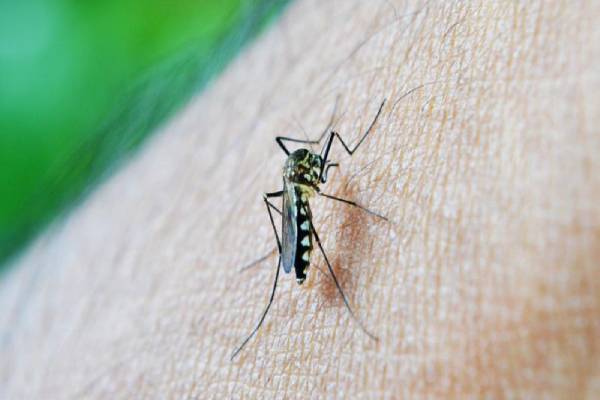Cambodia records 46 per cent drop in dengue cases in 2024
Cambodia reported 18,987 dengue cases in 2024, a sharp decline of 46 per cent from 35,390 cases in the year before, said a Ministry of Health's report on Sunday.
It is crucial for individuals to be aware of the symptoms, as well as the dos and don’ts to prevent the spread of these illnesses.

In recent weeks, health authorities have reported a significant increase in cases of dengue and malaria, raising concerns among communities and healthcare professionals. With the rainy season in full swing, the conducive conditions for mosquito breeding have contributed to the surge in these mosquito-borne diseases. It is crucial for individuals to be aware of the symptoms, as well as the dos and don’ts to prevent the spread of these illnesses.
Dengue, a viral infection transmitted by the Aedes mosquito, often presents with symptoms such as high fever, severe headache, joint and muscle pain, fatigue, nausea, and skin rash. In more severe cases, it can lead to dengue hemorrhagic fever or dengue shock syndrome, which may cause bleeding, organ damage, and even death. Malaria, on the other hand, is caused by the Plasmodium parasite and is characterized by symptoms like recurring high fever, chills, sweating, body aches, and fatigue. If left untreated, malaria can lead to complications affecting the vital organs.
Advertisement
To combat the rising cases and minimize the impact of these diseases, health experts emphasize the importance of both prevention and early detection. Here are some essential dos and don’ts to keep in mind:
Advertisement
1. Use mosquito repellents: Apply insect repellents containing DEET, picaridin, or other recommended ingredients to exposed skin.
2. Wear protective clothing: Cover exposed skin with long-sleeved shirts, long pants, and socks, especially during peak mosquito activity hours.
3. Eliminate mosquito breeding sites: Regularly empty, clean, or cover containers that can hold stagnant water, such as flower pots, tires, and water storage containers.
4. Install window screens: Fit windows and doors with screens to prevent mosquitoes from entering living spaces.
5. Seek medical attention: If you experience persistent symptoms or suspect dengue or malaria infection, promptly consult a healthcare professional for diagnosis and treatment.
1. Do not ignore symptoms: Take any symptoms related to dengue or malaria seriously and avoid self-medication. Early diagnosis and treatment are crucial for better outcomes.
2. Avoid mosquito bites: Minimize outdoor activities during peak mosquito hours, which are usually early morning and late afternoon. Use mosquito nets while sleeping and ensure the use of protective measures in high-risk areas.
3. Do not let water stagnate: Prevent the accumulation of water in and around your living spaces to discourage mosquito breeding.
4. Refrain from using ineffective mosquito control methods: Use scientifically proven methods for mosquito control and avoid relying solely on unverified techniques or devices.
Local health authorities are working diligently to control the spread of dengue and malaria through public awareness campaigns, mosquito control programs, and timely medical interventions. Communities are encouraged to actively participate in these efforts by implementing preventive measures and reporting any potential breeding sites.
As the dengue and malaria cases continue to rise, it is crucial for individuals to stay informed, take necessary precautions, and seek medical help when needed. By working together, we can mitigate the impact of these diseases and safeguard the well-being of our communities.
Advertisement